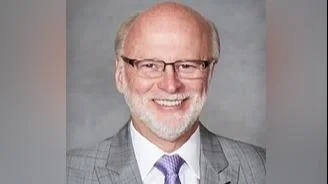State Representative Michael Coffey (IL) | Representative Michael J. Coffey, Jr. (R) 95th District
State Representative Michael Coffey (IL) | Representative Michael J. Coffey, Jr. (R) 95th District
In the fall of 1858, Abraham Lincoln and Stephen A. Douglas engaged in a series of debates that would not only shape their political futures but also address the pressing issue of slavery in America. The debates were part of their campaign for a U.S. Senate seat from Illinois, reflecting the broader national divide over slavery's expansion into new territories.
Illinois in 1858 was a reflection of the nation's tension over slavery. As a free state with southern influences, it embodied the divisions within the country. Stephen A. Douglas, known as the "Little Giant," was an established senator advocating for popular sovereignty—the idea that territories should decide on allowing slavery themselves.
Abraham Lincoln, relatively unknown at the time, opposed this view. He believed slavery was morally wrong and argued against its expansion while avoiding calls for immediate abolition to maintain voter support.
The debates were held across seven towns in Illinois and followed a strict format: one candidate spoke for an hour, followed by a 90-minute response from the other, and concluded with a 30-minute rebuttal by the first speaker. Without microphones, both candidates had to project their voices to large outdoor crowds.
Douglas supported popular sovereignty as a democratic solution to slavery, asserting that local communities had self-determination rights even if it meant permitting slavery. He believed that the Union could survive being half-slave and half-free as long as each territory chose its path.
Lincoln countered with moral arguments against slavery's spread, quoting Scripture: “A house divided against itself cannot stand.” While acknowledging that slavery was legal under certain conditions per the Constitution, he argued its expansion threatened America's moral foundation and principles of liberty and equality.
Despite losing the Senate race to Douglas, Lincoln gained national recognition through these debates. His logical arguments impressed audiences beyond Illinois and helped establish him as a leader within the Republican Party.
Douglas's commitment to states' rights showcased his political skills but ultimately alienated both pro-slavery Southerners and anti-slavery Northerners—a division that would affect him later.
The Lincoln-Douglas debates addressed America's identity crisis between democracy and morality concerning freedom versus preserving an unjust institution like slavery.
These debates remind us today of substantive discourse's power amid our challenges and divisions. They underscore leadership rooted in standing firm on convictions despite risks or unpopularity—lessons relevant now more than ever.
To explore more about these historic exchanges including full texts from different sessions visit Northern Illinois University Digital Library’s page on Lincoln-Douglas Debates of 1858.






 Alerts Sign-up
Alerts Sign-up